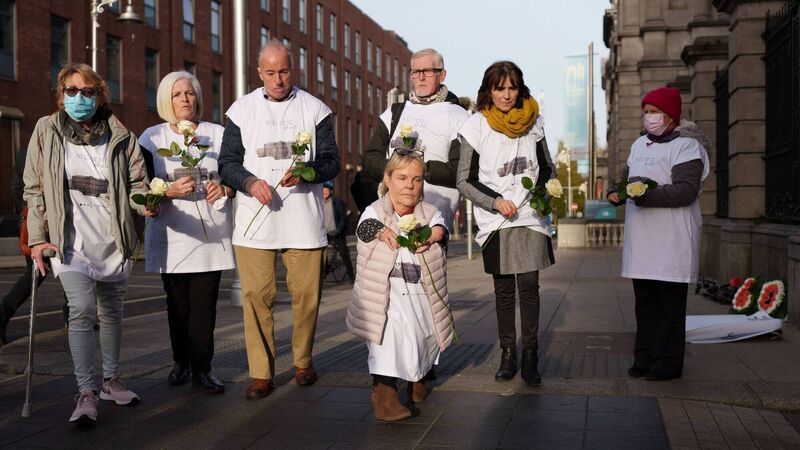Thalidomide survivors 'baffled' at meeting refusal by health minister

Thalidomide survivors at a protest outside the Dáil last November to mark the 60th anniversary of the international withdrawal of thalidomide in November 1961 when evidence of its catastrophic damage could no longer be ignored. Picture: Fran Veale/Julien Behal Photography
The Irish Thalidomide Association (ITA) has said it is “baffling” the health minister has not rescheduled a meeting with them which was cancelled one year ago.
Spokeswoman Finola Cassidy said they were due to meet with Stephen Donnelly on January 11 last year, and despite an emailed commitment to re-schedule, this has not happened.










